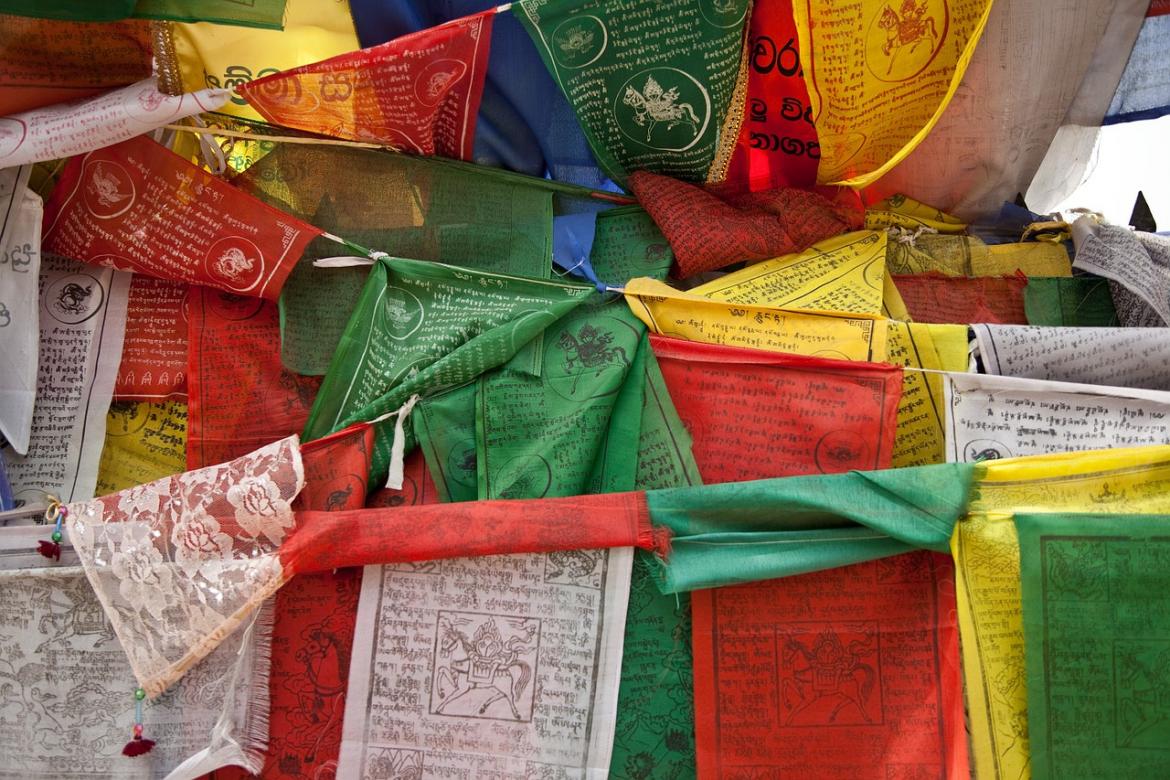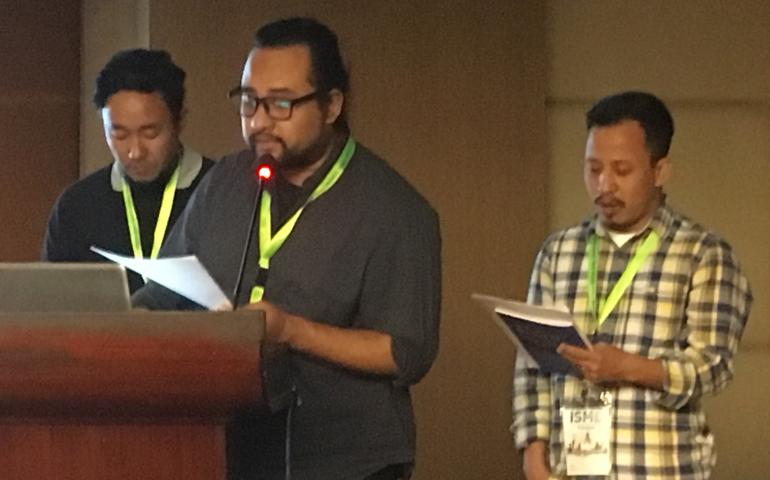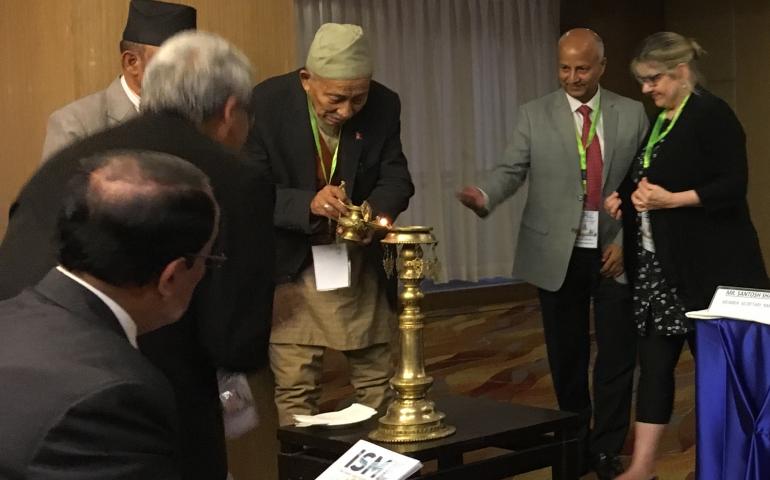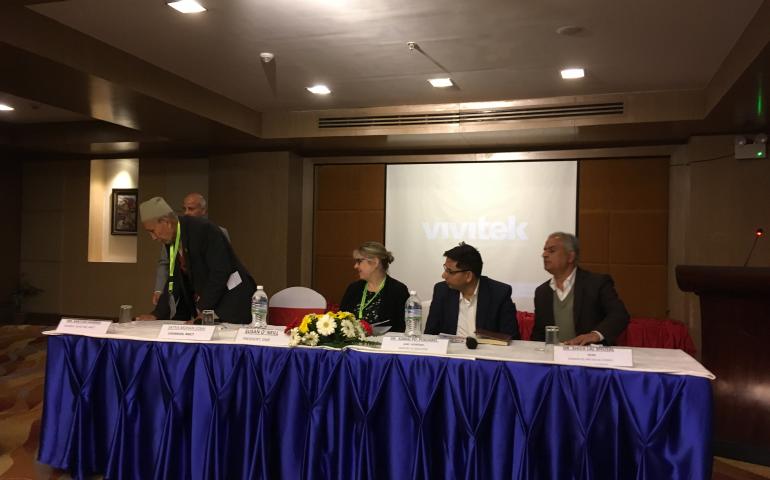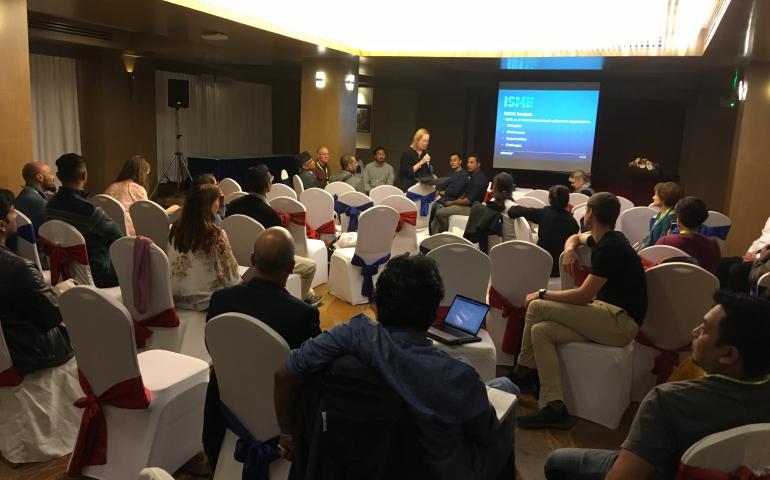The overarching conference theme was ‘Music teacher learning and life in the 21st century’. Notably, the first keynote address reflected on a Nepali-Finnish collaboration in music teacher education. Heidi Westerlund with researchers from the Global Visions through Mobilising Networks project Kushal Karki, Iman Shah, John Shrestha, Vilma Timonen, Riju Tuladhar and Danielle Treacy shared complex experiences and moments that created new ideas of themselves during their years-long intercultural professional dialogue. In the second keynote, Susan O’Neill asked a very relevant question in a context where music remains a subject usually taught only in private schools or music institutions: How can we ensure that all students have access to quality music learning opportunities? In addressing this question, she suggested that music teachers pay attention to affordances, and ask what is and is not made possible in different moments, actions and spaces.
The conference theme was also addressed through paper presentations focussed on mechanisms, challenges and capacity building in implementing music education in Nepal; collaborative professional learning and development in music education in Austria and Nepal; music education and teachers in relation to activism and change in Austria, Canada, Israel, Nepal, Portugal, the UAE and the USA; and navigating past, present and future musical practices in the changing societies of Finland, India, Nepal, and Sri Lanka. Through these presentations participants heard about diverse music education systems, diverse musical practices, and various initiatives music teachers and researchers are taking to sustain intangible cultural heritage. Workshops ranged from approaching issues of innovation and diffusion through beginner music for shamisen (a three-stringed instrument from Japan); using music as a vehicle for difficult conversations about race, gender, and class; and active music listening for children.
This ISME South Asia regional conference proved to be an important forum not only for experienced scholars, but also for supporting early career scholars, with a number of presenters participating in and giving a conference presentation for the first time. In addition, the conference was identified by a number of participants as being significant to their professional lives. One participant from the region, for example, described how this conference was significant for her, as it was only after encountering the first regional conference in Bangalore that she was inspired to pursue a masters’ degree in music education. It was also many Nepali participants’ first encounter with ISME, as the cost of travel prevents them from being able to attend ISME world conferences. As previously mentioned, even as a regional conference, a number of presenters had to cancel their participation after being unable to secure funding. The Consultation for the ISME 6-Year Strategic Plan thus stimulated much fruitful discussion about how to build and support a community of music educators not only in the South Asia region, but in other regions of the world facing similar challenges, and how ISME could support such endeavours.
ISME thanks the NAMM Foundation and the Nepal Music Centre for their support for this regional conference.









